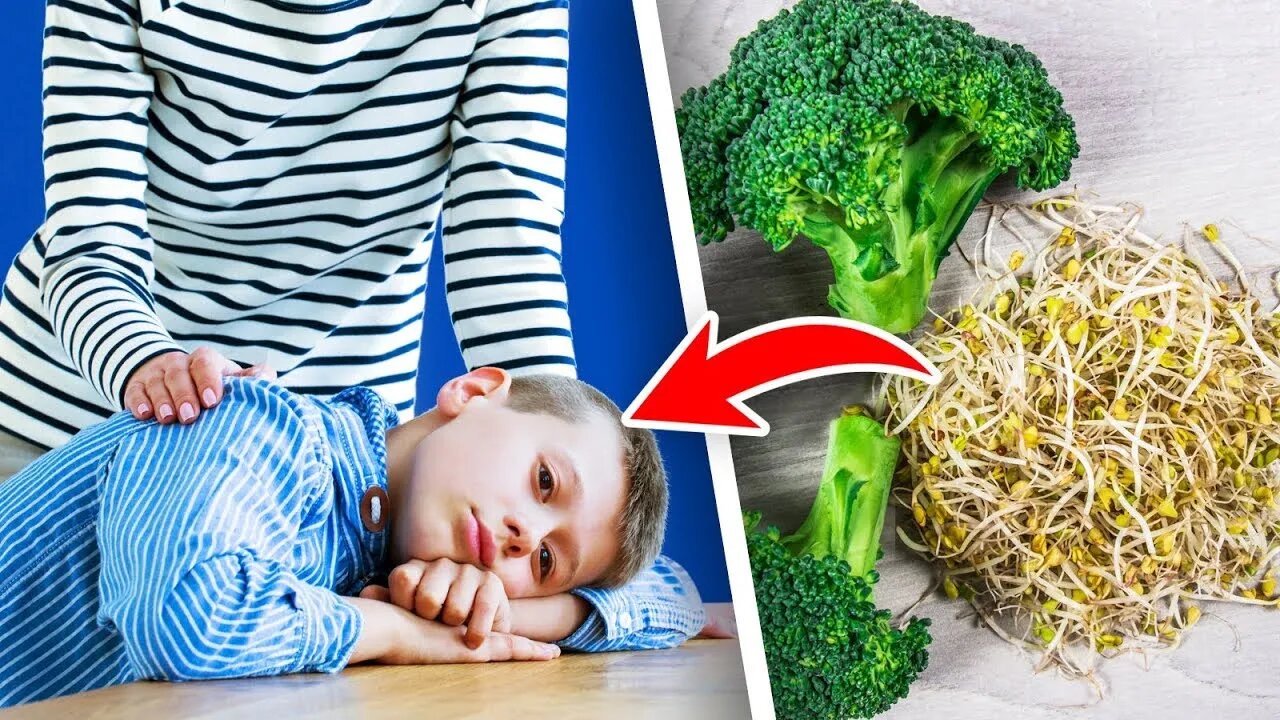Premium Only Content

Why Does Sulforaphane Cure Autism Symptoms_
Discover the potential benefits of sulforaphane for autism.
Video on HIV/AIDS: ▶️ https://youtu.be/sgybqwSQQSI
DATA:
https://www.sciencedirect.com/science/article/pii/S0899900711003777
https://pubmed.ncbi.nlm.nih.gov/35500829
https://www.oatext.com/Nrf2-gene-as-a-double-edged-sword-Clinical-relevance-of-its-genetic-polymorphisms.php
https://www.nature.com/articles/s42003-022-03189-z
https://www.ncbi.nlm.nih.gov/pmc/articles/PMC4811417/
https://pubmed.ncbi.nlm.nih.gov/36252731/
https://www.sciencedirect.com/science/article/abs/pii/S1532045620301782
https://faseb.onlinelibrary.wiley.com/doi/abs/10.1096/fasebj.31.1_supplement.lb621
0:00 Introduction: Benefits of sulforaphane for autism
0:21 What is sulforaphane?
0:30 Sulforaphane benefits
1:13 Autism explained
5:20 Nrf2 inhibitors
6:30 Nrf2 triggers
9:04 Learn more about your microbiome!
Today we’re going to talk about the potential benefits of sulforaphane for autism.
Sulforaphane is a natural chemical in cruciferous vegetables and other vegetables. Sulforaphane can be beneficial for other conditions as well, including:
• H. pylori
• HIV
• Hepatitis C and B
• SARS-CoV-2
People with autism have a low antioxidant capacity, oxidative stress, and neuroinflammation. One of the lowered antioxidants is glutathione.
Lowered glutathione is also involved in conditions other than autism, including:
• COPD
• Alzheimer’s
• Parkinson’s
• Cancer
• Autoimmune diseases
• ADHD
• Bipolar disorder
• Schizophrenia
• H. pylori
• HIV
A certain protein called Nrf2 is the master regulator of all of the antioxidants your body makes, including glutathione. This protein also activates detoxification enzymes, helps regulate T helper cells, and helps protect against oxidation and oxidative stress.
Things that inhibit Nrf2:
• High-sugar diets
• Lack of sleep
• Stress
• Glyphosate
• Alcohol
• Smoking
• Toxins
• Medications
• Infections
• Gene alterations
Things that trigger Nrf2:
1. Sulforaphane
2. Selenium, cysteine, glutamine, and tryptophan
3. NAC
4. Glutathione
5. Prolonged fasting
6. Cruciferous and sulfur vegetables
7. Alpha-lipoic acid
8. Vitamins A, C, D, E, and zinc
9. Milk thistle
10. Exercise
11. EGCG (green tea)
12. Healthy gut microbes
Dr. Eric Berg DC Bio:
Dr. Berg, age 58, is a chiropractor who specializes in Healthy Ketosis & Intermittent Fasting. He is the author of the best-selling book The Healthy Keto Plan, and is the Director of Dr. Berg Nutritionals. He no longer practices, but focuses on health education through social media.
Follow Me On Social Media:
Facebook: https://bit.ly/FB-DrBerg
Instagram: https://bit.ly/IG-DrBerg
Anchor: https://bit.ly/Anchor-DrBerg
TikTok: https://bit.ly/TikTok-DrBerg
Send a Message to his team: https://m.me/DrEricBerg
Disclaimer:
Dr. Eric Berg received his Doctor of Chiropractic degree from Palmer College of Chiropractic in 1988. His use of “doctor” or “Dr.” in relation to himself solely refers to that degree. Dr. Berg is a licensed chiropractor in Virginia, California, and Louisiana, but he no longer practices chiropractic in any state and does not see patients so he can focus on educating people as a full-time activity, yet he maintains an active license. This video is for general informational purposes only. It should not be used to self-diagnose and it is not a substitute for a medical exam, cure, treatment, diagnosis, prescription, or recommendation. It does not create a doctor-patient relationship between Dr. Berg and you. You should not make any change in your health regimen or diet before first consulting a physician and obtaining a medical exam, diagnosis, and recommendation. Always seek the advice of a physician or other qualified health provider with any questions you may have regarding a medical condition.
#keto #ketodiet #weightloss #ketolifestyle
Thanks for watching! I hope this helps increase your awareness of the potential benefits of sulforaphane for autism. I’ll see you in the next video.
-
 6:38
6:38
Dr. Eric Berg
7 days agoThe Shocking Truth About Vaccines
6.85K58 -
 10:03
10:03
The Pascal Show
21 hours ago $6.01 earnedNEW STATEMENT! D.A. Breaks Silence Since Emmanuel Haro Presser... Trying To Shut Up Social Media?!
20.3K5 -
 LIVE
LIVE
LethalPnda
1 hour ago🔫 "Bullets, Bad Decisions & Farlight 84" I @Mystivis
77 watching -
 21:22
21:22
GritsGG
17 hours agoPlugged in MnK on Warzone & We Hit Shots!
171K5 -
 1:23:30
1:23:30
TruthStream with Joe and Scott
2 days agoJaime Harlow is back! #483
16.8K21 -
 1:32
1:32
Gaming on Rumble
2 days agoWhat is the Rumble Creator Program?!?! | Lvl UP
65.8K4 -
 10:34:09
10:34:09
Rallied
16 hours ago $20.89 earnedSolo Challenges ALL DAY
266K9 -
 1:39:43
1:39:43
Brandon Gentile
2 days agoTOP Money Expert: Bitcoin Will Keep Setting All-Time Highs Beyond $10m
22K3 -
 2:02:28
2:02:28
Badlands Media
1 day agoDevolution Power Hour Ep. 385: Trump “Death” Hoax, Supreme Court Tariffs Fight, and Tech-Military Ops
76K40 -
 1:56:48
1:56:48
Tundra Tactical
10 hours ago $16.36 earnedFull Semi-Auto Comedy Hour
44.1K3